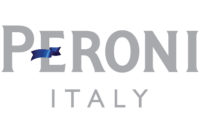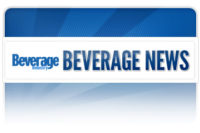Obesity continues to be a significant health issue in the United States and health-conscious consumers continue to look for functional products that promise weight management-related benefits. In their quest for wellness, consumers are learning more about the benefits of protein and fiber.
In addition, some consumers are searching for what Ram Chaudhari, senior executive vice president and chief scientific officer of Schnectady, N.Y.-based Fortitech Inc. calls a “magic bullet” for weight loss and management solutions.
Healthy-minded consumers also read product labels and are looking for more than low-fat, low-calorie and no-sugar product claims, says Paul Dijkstra, chief executive officer of InterHealth Nutraceuticals, Benicia, Calif.
“Consumers want efficacious and safe weight management beverages — and they also want results,” Dijkstra says. “Satiety claims, such as ‘reduces appetite’ or ‘inhibits hunger,’ are not only relevant to the consumer, but believable and credible. Being able to control hunger is a powerful thing. It not only affects weight management, but daily life as well.”
Increasingly, consumers have come to understand the importance between fat loss and increased lean body mass, Dijkstra says. However, manufacturers should ensure they have well-designed clinical studies to support their product claims, he says.
Protein proliferation
Late last year, the Dairy Research Institute, Rosemont, Ill., shared the news of a European research study published in the New England Journal of Medicine. Eight European research centers collaborated on the effectiveness of diets of varying protein content and glycemic index (GI) to prevent weight regain after a period of weight loss.
The study, which was called “DiOGenes” after a combination of Diet, Obesity and Genes, followed overweight and obese adults after they underwent an eight-week weight-loss phase. Following this period, participants were randomly assigned to one of five different diets: low protein/low GI, low protein/high GI, high protein/low GI, high protein/high GI or a controlled diet that followed the dietary guidelines of the participant’s country.
The study’s 548 participants completed a six-month diet intervention that found that a diet consisting of higher protein content and low GI foods helped ensure overweight people who lost weight were better able to maintain their weight loss.
The Dairy Research Institute emphasizes the role dairy-sourced proteins can play in the diet. Whey protein is a high-quality protein as it contains all of the essential amino acids and is naturally high in branch chain amino acids, including leucine, which can be metabolized directly in muscle, says Matthew Pahnke, director of nutrition research for the Dairy Research Institute.
“Studies have been conducted looking at ad-libitum, or energy-restricted, diets that are 25 to 30 percent of all calories for the day coming from protein versus a lower percentage of protein and more carbohydrates in people who are trying to lose or maintain weight,” Pahnke says. “The research shows that the weight loss or maintenance is of higher quality, meaning you lose more fat and/or retain more muscle when eating a higher protein diet.”
In addition to the European study, the institute also highlights the importance of consuming protein throughout the day, he says.
For some beverage-makers, the notion of protein as a snack has provided an option for health-minded consumers. Protein — either sourced from milk or vegetable sources — has expanded beyond protein powders for after-workout shakes and into ready-to-drink options that are positioned as a filling snack or meal replacement.
This spring, Sambazon launched a line of Acai Berry Superfruit Smoothies made with vegan whole food protein. Available in Vanilla and Chocolate, the smoothies are certified organic and contain acai juice and protein from soymilk and hemp protein.
Earlier this year, Bolthouse Farms introduced Protein Plus Parfait Smoothie to its line of smoothie beverages. The product is modeled after yogurt parfaits and is made with strawberry puree, toasted granola and yogurt along with 25 grams of protein. The beverage incorporates whey protein for quick absorption as well as soy protein for sustained benefits, the company says.
Archer Daniels Midland Co. (ADM), Decatur, Ill., introduced a new line of vegetable-based protein under the Clarisoy banner. Clarisoy ingredients are designed to provide clarity and complete protein nutrition for low pH beverage systems, such as sports nutrition beverages, citrus-based drinks, fruit-flavored beverages, lemonades, powdered beverage mixes, fruit juice blends and fortified waters, the company says.
The fortified waters category grew as Cytosport released Protein H2O under its Muscle Milk banner last year. The sugar-free beverage contains 10 grams of whey protein and 5 grams of fiber in each serving. Protein H2O is recommended for post-workout recovery or throughout the day as a “hydrating protein source,” the company says.
A marketer of protein-enhanced water Whole2O in its native New Zealand and neighboring Australia, Fonterra offers its ClearProtein range of whey protein ingredients for beverages. Fonterra’s ClearProtein is available in 8855 Whey Protein Isolate (WPI) that is designed for ready-to-drink (RTD) acidic beverages; 8822 WPI for clear, clean-tasting powdered beverage applications; 895 WPI that is 90 percent protein and suitable in powdered and RTD beverages; and 894 WPI that also contains 90 percent protein and is applicable in powdered beverage applications.
Irish company Glanbia plc also expanded into the branded protein product category with its acquisition of Bio-Engineered Supplements and Nutrition (BSN) earlier this year. The Boca Raton, Fla.-based company markets the Syntha-6 line of RTD protein-enhanced beverages.
Glanbia continues to offer a variety of whey protein ingredients that are suitable for beverage applications, including Avonlac whey protein concentrate, Provon whey protein isolates and Thermax heat-stable whey proteins. The Avonlac range provides a number of ingredients ranging from 34 to 80 percent protein content.
Glanbia’s Provon line of whey protein isolates is made using its highly purified source of whey protein that is processed using the company’s cross-flow microfiltration process. The line’s Provon A-190 and Provon A-292 are specially formulated for high-acid beverage applications. The heat-stable line is manufactured using advanced protein technology and is available in Thermax 34 and 70 whey protein concentrates and Thermax 690 whey protein isolate.
The company also has the capability to manufacture micronutrient premixes that contain amino acids, vitamins and other specialty ingredients for a range of beverage formulations, the company says.
Fiber formulations
In addition to protein, consumers are understanding the role fiber can play in a weight management regimen. In some cases, fiber is combined with protein for double benefits, says Käti Ledbetter, product development scientist at ADM.
“Consumers are looking for beverages with ingredients that will help the consumer feel satiated over an extended period of time and help them manage their weight,” she says. “Some of the claims that these consumers are seeking are claims related to protein and fiber. By combining the properties of proteins and fibers, products are developed to meet the satiety and weight management needs of the consumer.”
ADM in combination with Matsutani offers Fibersol-2 digestion resistant maltodextrin, which is a 90 percent soluble dietary fiber sourced from corn. The company has found that Fibersol-2 helps with regularity, blood glucose levels and serum lipid levels, Ledbetter says. In addition, Fibersol-2 digestion resistant maltodextrin might affect satiety by decreasing hunger, prolonging satiation or increasing satiety signals from the gut, she says.
Fibersol-2 is essentially tasteless, colorless, odorless and transparent in solution and adds minimal viscosity, contains minimal sugars and is soluble in water up to 70 percent, Ledbetter says. The ingredient is stable in acidic conditions of up to pH 2, elevated temperatures and does not break down during its shelf life, she says.
The company offers the fiber in an agglomerated form, which was developed for incorporation into products where low bulk density is needed and particle size is essential, such as stick packs of powdered beverage mixes. The ingredient is suitable for low, no or reduced sugar and fat as well as reduced calorie applications, Ledbetter says.
ADM also recently created Fibersol-LQ corn syrup that was designed for applications where liquid handling is preferred as well as added sweetness and humectancy are beneficial, Ledbetter says. The product is applicable in finished beverage applications and contains 75 percent soluble dietary fiber on a dry solids basis, she says.
Minneapolis-based Cargill offers Oliggo-Fiber inulin ingredients that are available to improve the nutritional value of food products by increasing the dietary fiber content, the company says. The ingredient is sourced from chicory roots and is a mixture of non-digestible oligosaccharides and polysaccharides built of fructose units.
Functional options
In addition to protein and fiber, beverage-makers also can turn to a range of ingredients that offer weight management claims. Nutrient premix formulator Fortitech cites a list of potential ingredients for weight loss ranging from caffeine to licorice to apple cider vinegar, Chaudhari says. Although, he cautions formulators to take interactions, bioavailability, potency and shelf life into consideration when creating a weight management-aimed product.
“Adding multiple ingredients to beverages targeting weight loss/management can promote improved health and, from a business perspective, can also make for more marketable products,” Chaudhari says. “However, blending nutrients is a science involving consideration of many factors. Good practice calls for high-quality nutritional blends that address these issues and gain consumer confidence in the product. You can add all the ingredients you want into a beverage designed to assist in weight loss, but if it doesn’t taste good, there will be no repeat purchase.”
The Wright Group, Crowley, La., addresses weight management through a multi-pronged approach that includes enhanced nutrition, satiety ingredients and thermogenic, or fat-burning, ingredients, says Sam Wright IV, the company’s chief executive officer. For enhanced nutrition, the company offers its SuperCoat microencapsulated ingredients that protect nutritional integrity of micronutrients, such as vitamins, minerals and proteins. The Wright Group’s satiety ingredients include soluble fibers and polysaccharides that have prebiotic benefits.
Omega-3 fatty acids also have been shown to have some satiety-related benefits, Wright says. The company offers microencapsulated omega-3 powders for use in beverages.
Rounding out its approach, The Wright Group recommends thermogenic ingredients, such as microencapsulated caffeine, D-ribose, L-carnitine, taurine, glucoronolactone, green tea extract and conjugated linoleic acid. He also cites emerging ingredients such as fucoxanthin derived from brown seaweed and white bean extract, which is used as a carbohydrate blocker.
The company works with clients to deliver the nutrients in a manner that tastes good, disperses well and remains stable, Wright says. Its nutrient platforms can work in energy drinks and shots, stress/mood drinks, dairy-based beverages, nutritional drinks for an aging population, carbonated beverages and fortified waters, he says.
InterHealth Nutraceuticals developed Super CitriMax and ChromeMate ingredients for use in weight management positioned beverages, Dijkstra says. Used in The Coca-Cola Co.’s Fuze brand’s Slenderize product line, Super CitriMax is a patented natural ingredient containing hydroxycitric acid extract from the South Asian fruit Garcinia cambogia that is bound to essential minerals calcium and potassium. In published peer-reviewed clinical research, Super CitriMax was shown to increase weight loss partly because of its ability to increase satiety and reduce calorie intake, he says.
The company’s ChromeMate ingredient is a highly bioavailable chromium that supports healthy body weight. ChromeMate is a niacin-bound chromium called chromium nicotinate or polynicotinate that helps increase the effectiveness of chromium, the company says. Randomized, double-blind, placebo-controlled research showed that ChromeMate increases fat loss and maintains lean body mass, Dijkstra says.
Both of InterHealth’s ingredients can be used in a wide variety of beverages, such as water-based, juice-based and dairy-based products as well as meal replacement shakes, beverage mixes, shots and gels, he says.
NutraGenesis, Brattleboro, Vt., in partnership with its affliate company Icon Group, offers EssentraTrim, WellTrim iG, Lepticore and WellTrim Ultima ingredients that are supported by randomized, double-blind, placebo-controlled human clinical trials, explains Suzanne McNeary, president of NutraGenesis.
EssentraTrim provides stress reduction and emotional uplift benefits to reduce the incidence of stress-related eating, improve cardiovascular benefits and promote more restful sleep, which is linked to weight loss, McNeary says.
For satiety and appetite control benefits, NutraGenesis’ WellTrim iG, WellTrim Ultima and Lepticore ingredients reduce leptin resistance and enhance leptin function, McNeary says.
“Leptin is the key hormone that regulates appetite and weight loss by managing satiety, appetite control, metabolism and blood sugar,” she says. “Leptin tells your brain when to eat, how much to eat and most importantly, when to stop eating. Overweight people have high levels of leptin in their blood, yet are resistant to its effects, which is known as ‘leptin resistance.’”
In addition, Lepticore also enhances serotonin levels, which is a neurotransmitter that promotes mood enhancement and is known as a satiety enhancer, McNeary explains. The ingredient is moderately soluble and would work in viscous juices, smoothies, drink mixes or shots.
WellTrim iG increases adiponectin, which is a hormone released by fat cells, the company says. High serum adiponectin levels are associated with cardiovascular health and healthy body weight, McNeary says. WellTrim Ultima also provides cortisol reduction for stress-related appetite and sleep enhancement, she says.
The company’s EssentraTrim, WellTrim iG and WellTrim Ultima are water-soluble and applicable in all beverages, McNeary says.
Serotonin also was a focus for P.L. Thomas’ Satiereal ingredient. Satiereal is clinically proven to improve levels of serotonin and is made from the flowers of saffron crocus. The Morristown, N.J.-based company’s double-blind placebo controlled studies show that Satiereal increases satiety, decreases hunger, reduces sugar cravings and reduces compulsive snacking between meals, it says. BI
|
DSM opens new innovation center |
|
Designed to foster inspiration and creativity, DSM opened a state-of-the-art Nutrition Innovation Center in Parsippany, N.J. The company’s decades of experience in nutritional and specialty ingredient solutions will be available on demand to help manufacturers across several industries, including those in the beverage industry. The New Jersey facility houses laboratories and sensory analysis facilities as well as a fully equipped pilot plant. These enable the company to optimize production processes, improve product quality, test new ingredients and analyze and evaluate a wide range of products, it says. The advanced regional applications laboratory will speed the development of tailor-made beverages, DSM says. “Our new nutrition center is truly a ‘one-stop shop’ for innovation,” said Rick Greubel, president of Human Nutrition & Health with DSM Nutritional Products, in a statement. “It will enable customers to stay ahead in a highly competitive, constantly changing health and nutrition marketplace — whatever their target application.” For the beverage industry, DSM provides comprehensive scientific and technical support that enable beverage manufacturers to develop innovative products that offer optimal nutrition, color, flavor, stability and consistency, it says. Applications include ready-to-drink beverages, such as juices, nectars, carbonated soft drinks, energy and sports drinks, and enhanced water beverages as well as instant powders, meal replacement drinks, smoothies, base/compounds, and soy drinks. Customers’ product development efforts are enhanced by colorimeter and multisource light boxes for viewing product samples and sensory evaluation rooms to accurately analyze and assess key product attributes, the company says. DSM also offers the applied skills and proven tests that ensure the development of appealing and effective beverages, including color matching, prototyping, color and turbidity testing, analytical, stability and sensory testing, troubleshooting, scaling up and feasibility trials. Technical support features hot-fill, aseptic and carbonated processing, as well as glass and PET filling with under N2 dosing, a blanking process to eliminate or reduce the oxygen level in the beverage. The facility also maintains temperature- and humidity-controlled storage chambers, as well as photostability chambers. The innovation center includes areas for customers to check e-mail and other forms of communication. The company said the center was designed to engage its customers. “The scope of this site really is unrivalled anywhere in the world,” said Hans-Christian Ambjerg, president of DSM Food Specialties, in a statement. “From this one location, DSM’s vast scientific knowledge will help manufacturers achieve faster product development, enhanced operational and cost efficiencies and, ultimately, increased profits.” BI |







